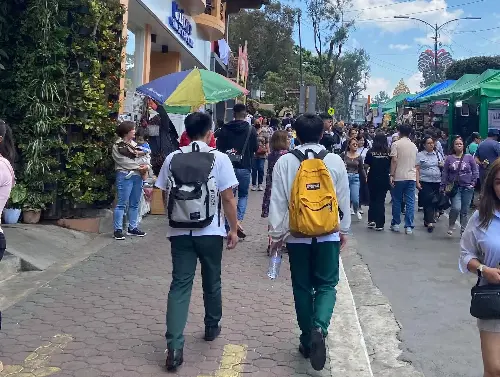
MANILA, Philippines – President Ferdinand Marcos Jr. signed a law on Wednesday, March 5, allowing Filipinos to earn a degree through non-traditional means, aside from the usual four-year tertiary education.
Republic Act 12124 institutionalizes the Expanded Tertiary Education Equivalency and Accreditation Program (ETEEAP), allowing Filipino professionals to complete their college degrees while working.
Under the new law, the ETEEAP will “identify, assess, validate, and assign equivalent undergraduate-level and special graduate programs” based on prior learning from formal, non-formal, and informal education systems, as well as relevant work experience, to qualified individuals for the granting of appropriate academic degrees.
ETEEAP is not a new program, as some colleges and universities have been implementing it since 1996 through an executive order. However, formalizing it into a law integrates ETEEAP into the structured system of the Commission on Higher Education (CHED).
Malacañang said that CHED will oversee the implementation of ETEEAP, including monitoring, as well as setting standard fees and other administrative charges for accreditation, all of which will contribute to the program’s objectives.
CHED will accredit and “deputize” higher education institutions (HEIs) to implement ETEEAP. HEIs should conduct rigorous evaluations to assess applicants’ professional knowledge and skills. This ensures that they meet the academic standards required for degree equivalency.
The government will also allocate funding for the implementation of ETEEAP in the General Appropriations Act, to be charged under CHED’s budget.
“Our vision is to empower more Filipinos by providing alternative pathways to education. We understand how important a college diploma is for our kababayans, and we want to ensure that they can take advantage of their work experiences, achievements and skills to earn a Bachelor’s degree without going through traditional schooling methods,” said Senator Joel Villanueva, principal sponsor and author of the law.
Who are qualified?
Filipinos, whether based in the country or abroad, may apply for ETEEAP, provided they meet the following requirements:
- At least 23 years old
- High school graduate; must have high school diploma
- Must have at least 5 years of experience in the industry of degree equivalence
Each HEI will establish its own guidelines for implementing ETEEAP, subject to CHED approval. Applicants may be required to provide documentation and a work portfolio. The program is designed to allow enrollees to complete their undergraduate degree in just one school year through a “personalized and individualized delivery” approach. – Rappler.com
